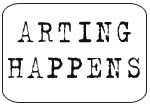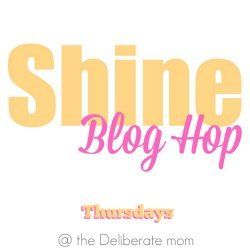The reason I'm writing about this is because I want to continue to spread the word about synesthesia so that people can become more aware of it. Anyone can have it: children, adults, teens, the elderly, anyone. It's something that people are born with; you either have it, or you don't. For some, it doesn't affect their day-to-day existence too much. For others, it has a huge impact on everything they experience.
The technical definition of synesthesia is this: "a neurological phenomenon in which stimulation of one sensory or cognitive pathway leads to automatic, involuntary experiences in a second sensory or cognitive pathway". It is a "union of the senses". Essentially, it is like having an added sense similar to sight, sound, smell, etc.
What it means for me is that all words, letters, days of the week, months of the year, time, some numbers, music, people, places, and names are associated with color. These are automatic, natural associations that I have no control over. Other synesthetes may have different associations, such as experiencing taste when hearing specific words. There are many forms of synesthesia and it is a scientifically documented occurrence.
When I see the letter "A", it appears red in my mind's eye. Same with the month of August or the time of 9:00. When I see my daughter Harmony, she has a sort of golden-honey aura around her, an innate color that I associate with her being. When I hear a song on the radio or played live, it will have a glow of colors that radiate through my vision. The strongest colors I see are for letters/words or music. Most of the time I know that the colors are simply in my mind; other times the colors actually appear to be out in my surroundings. Just as if you see a flower and you can automatically smell it when you bring it to your nose, when I hear music, I see colors, too.
The entire world radiates color.
I didn't know that synesthesia was something that not everybody had until I was eighteen. I was sitting in a music class at my university as we studied seventh chords. The teacher would play diminished, dominant, major, or minor seventh chords on the piano and ask the class to tell him which one in particular it was. I was simply looking at the shade of blue each chord had, so it was easy to tell them apart. When I mentioned that to everyone, they looked at me like I was CRAZY. "Doesn't everyone just look at the different colors each chord has....?" I asked. They told me that people don't see colors with music, and that I must be making it up or be on drugs. My mind was completely blown! I immediately went to research what could possibly be wrong with me.
That's when I found out about synesthesia.
Nobody really knows how many people have synesthesia, or what percentage of the population has it. Scientific estimates guess that around 5-10% of people may have it, but there's no definite number. I know a handful of people who are synesthetes:
~ Several of my college friends (all musicians) had strong versions of synesthesia. A few other guitarists or artists I know have mild forms of synesthesia that they acknowledge but that do not have a significant impact in their lives. Several musicians I know who are professionals in their fields have very powerful forms of synesthesia that they actively utilize in their art. One of the contested theories about synesthetes is that those with synesthesia are more likely to be involved with the creative and fine arts, due to the high cross-sensory connections they have.
~ One of my friends, a fellow mother, sees numbers and objects as having gender and personalities, but it doesn't affect her everyday life too much, she says.
~ Three young people at my church have synesthesia, two of them extremely strongly where it affects them almost negatively as they deal with sensory overload, similar to what I had to learn how to overcome as a child, too. It was very overwhelming when I was younger to have so much stimulus all the time coming in through my senses!
~ Two of my guitar students have synesthesia. One doesn't notice it much, and describes it as not interfering with his everyday life. The other has strong synesthetic experiences with music which we are currently learning how to use in a positive way in his musical development.
Otherwise, in the wide circles of acquaintances and friends I have, nobody else to my knowledge has it. That could always change, though. Oftentimes a child may not know that they have synesthesia because they think that everyone has the same experiences they do (like I did). Parents often think that children are making it up or simply pretending that letters have color or personality, for example. Or a person may experience bullying or opposition for being "different", so they might hide their synesthesia.
I wish someone had been around to help me learn how to deal with my synesthesia when I was a kid! Eventually I learned to work through the sensory overload, and even figured out how to use certain aspects to my advantage. For example, I learned how to speed-read by skimming the colors of words rather than reading individual words. This would have been easier if I'd known about synesthesia in the first place. But if you've never heard of it, then you can't understand it.
That's why I want to continue to tell everyone I know about synesthesia.
Are there disadvantages to having synesthesia? Yes and no. It's like asking, "are there disadvantages to having the sense of taste". Yeah, when you taste something bad! But it's just another sense. Sometimes it's annoying, sometimes it's awesome, but it's just something you live with and learn to deal with and use to certain extents. When I am at a concert with loud music, sometimes the visual colors are so crazy that I am completely overwhelmed; in a similar case, I can't listen to certain kinds of music while I'm driving because the synesthetic responses to the music are so intense that it distracts me too much from driving. Here is a very helpful article about ten disadvantages to synesthesia that I highly recommend.
People are still people. Synesthesia isn't a super-power. It doesn't make a person any more "special" than someone without synesthesia. But it does make them perceive the world a little differently. And it is kinda cool :-)
If you'd like more information about synesthesia, here is the Wikipedia article about it. You can also visit this website, see Pharrell Williams speaking about his synesthesia, check out the website of the American Synesthesia Association, and see a list of historical figures who had synesthesia.
Please help spread the word about synesthesia! Do you know anyone with it? Are you a synesthete?
{Inspired by Write Alm's January prompt, COLOR}











3 comments:
Fascinating.
this is so cool. i remember my little sister talking about this being a book she read not long ago. i like the way you compared it to taste, and honestly, besides a vague idea of what it was, i'd never really known that much about it. this is just fascinating to read! i wonder what causes it? like, is it just in the genetic makeup of some people? God really gets creative making some people, doesn't He!? the speed reading for both music and words sounds amazing. thank you for sharing!!
It's kinda strange, yet fascinating, @thegreatfish!
@Abigail, from what I understand it's a neurological condition where the synapses in your brain are not pruned away like they should be when you are a baby or something bizarre like that, so your senses are just... connected! And yes, God has a sometimes hilarious sense of humor when He creates people ;-) I love being able to read colors! Thanks for reading!
Post a Comment